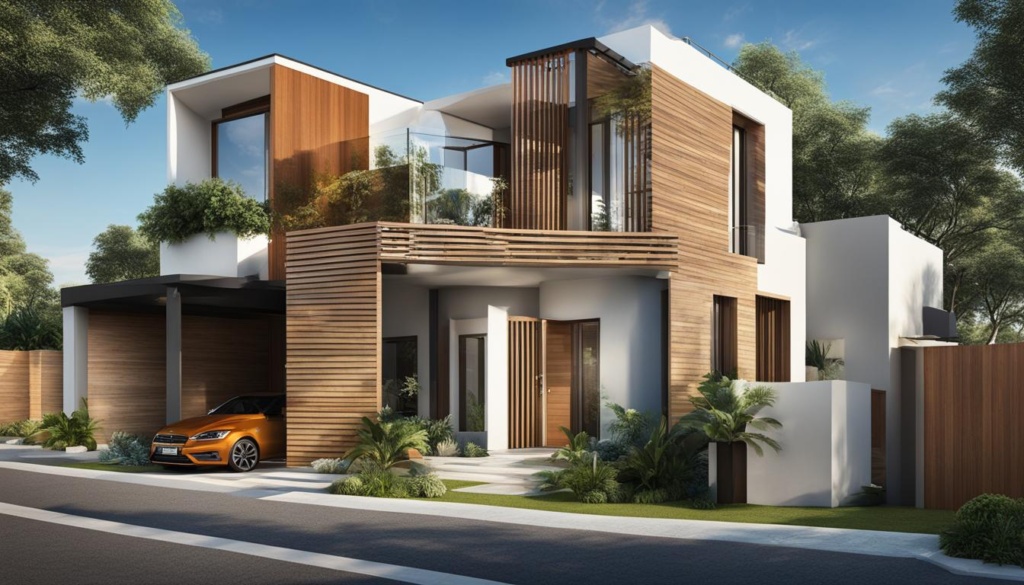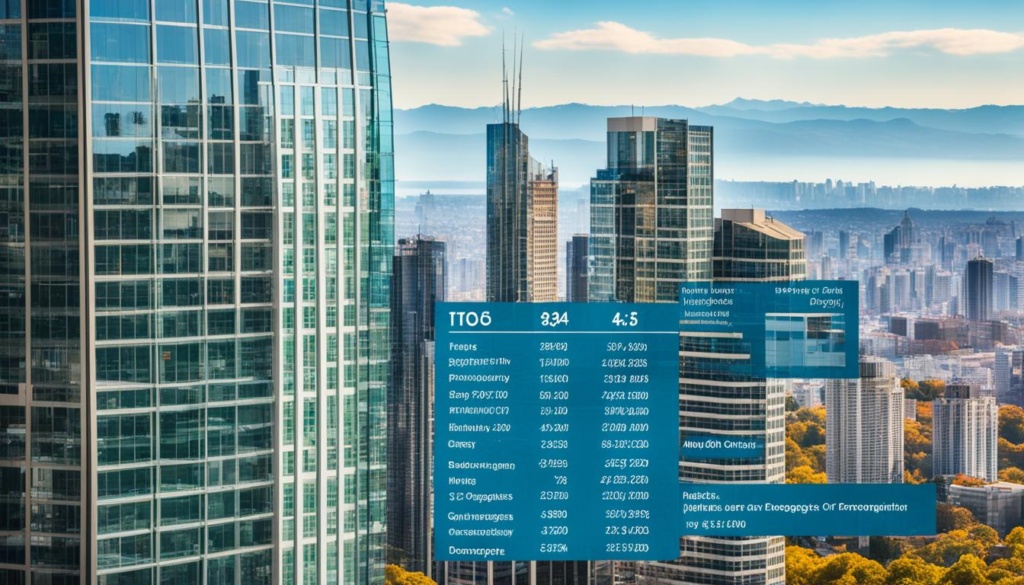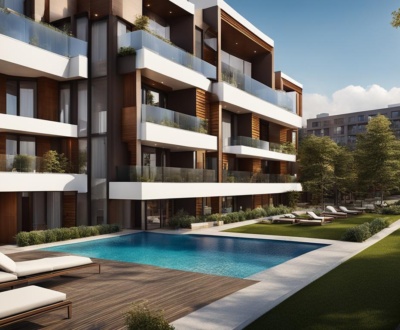Argentine Real Estate Market Analysis Insights
- January 21, 2024
- Argentina Investments, Argentina Property, Argentina Real Estate
As we step into the year 2024, the real estate landscape in Argentina continues to evolve, presenting both challenges and opportunities for investors, homeowners, and industry stakeholders. In this article, we will give you a clear picture of what’s happening in Argentina’s real estate scene for the year ahead.
Argentina’s economy and stability have historically been characterized by cycles of boom and bust, which have had a significant impact on its real estate market. The country has faced periods of high inflation, economic recession, and political instability, all of which have influenced the real estate sector. The housing market in Argentina has experienced fluctuations based on economic conditions, with affordability being a consistent issue. Government policies and regulatory changes have also shaped the market.
Argentina has traditionally been a country where people like to invest in real estate, viewing it as a safe haven for capital. However, there are risks to consider, such as economic instability and currency devaluation. Looking ahead, the outlook for Argentina’s real estate market is influenced by various factors, including inflation rates, government policies, and global economic trends. It’s important to conduct thorough market analysis and research before making any investment decisions in Argentina.
Key Takeaways:
- Argentina’s real estate market is influenced by economic cycles, inflation, and political instability.
- Government policies play a crucial role in shaping the housing market and offer incentives for real estate investment.
- Foreign investors are attracted to Argentina’s real estate market but should consider economic volatility.
- Real estate prices in Argentina show regional differences based on economic conditions and demand.
- Thorough market analysis and research are essential for making informed investment decisions in Argentina’s real estate market.
Economic Conditions in Argentina
Argentina’s economy and stability have historically been characterized by cycles of boom and bust, which have had a significant impact on its real estate market. The country has faced periods of high inflation, economic recession, and political instability, all of which have influenced the real estate sector.
During periods of economic growth, the real estate market has experienced booms, with rising property prices and increased construction activity. However, during economic downturns, the market has often suffered, marked by a slowdown in construction, decreased property sales, and stagnant or falling prices.
Affordability has been a consistent issue, with high inflation often making it difficult for the average Argentine to purchase property. Rental markets have also seen shifts in demand based on economic conditions.
To provide a better understanding of the economic conditions in Argentina, let’s take a closer look at the impact of inflation, recession, and political instability on the real estate market.
Inflation and Real Estate Market
Argentina has faced periods of high inflation, which can have a significant impact on the affordability and stability of the real estate market. When inflation rates are high, the purchasing power of individuals decreases, making it more challenging to buy property. This can lead to a slowdown in property sales and a decrease in property prices.
Inflation can also influence rental markets, as landlords may increase rents to compensate for the rising costs of maintaining properties. This can affect the demand for rental properties and the affordability of housing for tenants.
Recession and Real Estate Market
During economic recessions, the real estate market in Argentina often experiences a slowdown. Construction activity may decrease as developers and investors become more cautious about investing in new projects. This can lead to a reduced supply of properties in the market.
Decreased consumer confidence during recessions can also affect property sales. Potential homebuyers may postpone their purchase decisions, waiting for the economic situation to improve. This decrease in demand can result in stagnant or falling property prices.
Political Instability and Real Estate Market
Political instability can create uncertainty and impact the real estate market in Argentina. Investors, both domestic and foreign, may be hesitant to invest in the country during times of political turmoil. This can lead to a decrease in real estate investments and a slowdown in construction activity.
Political instability can also influence economic policies and government regulations, which may directly impact the real estate sector. Changes in regulations or policies can affect property ownership rights, construction permits, and tax incentives, among other factors.
| Economic Condition | Real Estate Market Impact |
|---|---|
| Inflation | Decreased affordability, slowdown in property sales, and potential decrease in property prices. |
| Recession | Slower construction activity, decreased property sales, and stagnant or falling prices. |
| Political Instability | Decreased real estate investments, cautious investors, and potential changes in regulations or policies. |
Government Policies and Regulations
Government policies have played a crucial role in shaping the housing market in Argentina. Various administrations have implemented policies aimed at stimulating the market, such as tax incentives for construction and home buying, and subsidized mortgage programs. Efforts have also been made to increase affordable housing and support first-time homebuyers. However, the effectiveness of these policies has often been limited by broader economic challenges.
Regulatory changes have also been implemented to protect consumers and stabilize the market. Stricter regulations on mortgage lending have been introduced to ensure responsible borrowing practices and reduce the risk of defaults. Measures against money laundering in real estate transactions have been put in place to promote transparency and maintain the integrity of the market.
However, frequent changes in regulations and economic policies have created some uncertainty for buyers and sellers. The fluctuating regulatory environment can make it challenging for market participants to navigate the real estate landscape. It is crucial for investors and industry stakeholders to stay updated on the latest policies and regulations to make informed decisions and mitigate risks.
Overview of Government Policies
| Policies | Description |
|---|---|
| Tax Incentives | Government initiatives to encourage construction and home buying by providing tax benefits. |
| Subsidized Mortgage Programs | Programs aimed at making homeownership more accessible and affordable, particularly for first-time homebuyers. |
| Affordable Housing | Efforts to increase the supply of affordable housing options to address the housing affordability issue. |
| Mortgage Lending Regulations | Stricter regulations on mortgage lending to ensure responsible borrowing practices and reduce the risk of defaults. |
| Anti-Money Laundering Measures | Measures implemented to prevent money laundering in real estate transactions and promote transparency. |
Real Estate Investment Opportunities
Argentina has long been regarded as a promising destination for real estate investment, making it an attractive option for both domestic and foreign investors. The country offers a range of investment opportunities, particularly in major cities such as Buenos Aires, Córdoba, and Mendoza. These urban areas, along with suburban neighborhoods, are known for their thriving residential properties and strong rental demand.
Foreign investors, in particular, can benefit from Argentina’s welcoming stance towards property ownership. Unlike some countries, Argentina imposes no restrictions on non-residents owning real estate, providing an enticing opportunity to capitalize on the market. Additionally, major cities offer high rental yields, allowing investors to generate attractive returns on their investments.
However, it’s important to weigh the advantages against the potential challenges. Economic volatility and fluctuating exchange rates can impact real estate investments, and navigating the bureaucratic processes for property transactions can be complex. Furthermore, Argentina’s unique economic conditions mean that real estate prices can be competitive compared to neighboring countries.
To summarize:
- Argentina offers a safe haven for real estate investment, particularly during times of economic instability.
- Major cities like Buenos Aires, Córdoba, and Mendoza present lucrative investment opportunities.
- Foreign investors enjoy the advantages of unrestricted property ownership in Argentina.
- Rental yields in major cities can provide significant returns on investment.
- Economic volatility and fluctuating exchange rates pose potential challenges.
- Real estate prices in Argentina can be competitive compared to neighboring countries.
By carefully considering the investment landscape and understanding the economic dynamics, investors can seize the potential offered by Argentina’s real estate market.
Outlook and Forecast
Argentina’s real estate market has unique factors that distinguish it from others. The use of the U.S. dollar in high-value transactions, the country’s historical volatility, and its appeal as a hedge against inflation and economic instability make it attractive during times of uncertainty. Forecasting the country’s economy and stability requires considering various factors, including inflation rates, government policies, and global economic trends.
While specific future trends are challenging to predict, it’s generally advisable to be prepared for potential economic fluctuations. Cities like Buenos Aires, Córdoba, and Rosario have traditionally experienced fast growth, but emerging trends in suburban and rural areas are also worth noting. Economic stability, successful government policies, and increased foreign investment can suggest positive changes in the market. However, risks such as economic instability, currency devaluation, and political uncertainty should also be considered.

| Key Factors | Expected Impact |
|---|---|
| Economic Stability | The presence of stable economic conditions leads to increased investor confidence and potential market growth. This can attract foreign investment and stimulate real estate activity. |
| Successful Government Policies | Effective policies aimed at promoting real estate development, affordable housing initiatives, and easing bureaucratic processes can improve market conditions and generate investment opportunities. |
| Increased Foreign Investment | Foreign investors’ interest in the Argentine market can inject capital, foster economic growth, and contribute to the expansion of the real estate sector across different regions. |
| Economic Instability | Periods of economic instability, characterized by high inflation rates and currency devaluation, can impact real estate prices, affordability, and investment potential. |
| Political Uncertainty | Changes in government, political unrest, and policy shifts can create uncertainty and affect investor confidence, potentially impacting the real estate market. |
Housing Prices in Argentina
The trend in real estate prices in Argentina is closely tied to the economic context of the country. While the real estate market has shown resilience in the face of economic instability, it has not been immune to the broader challenges. Economic crises often result in initial stability of real estate prices due to properties being priced in U.S. dollars. However, prolonged economic difficulties, such as high inflation and decreased purchasing power, have had a significant impact on the market.
During periods of economic downturn, the real estate market experiences a slowdown, reflected in reduced transactions and adjustments in property values. It’s important to consider the impact of inflation and currency fluctuations when comparing current prices with those from a decade ago. Real estate prices in Argentina exhibit a mixed pattern, with some areas experiencing growth while others remain stable or decline.
Regional economic activities, infrastructure developments, and overall demand all play a role in influencing variations in property values. Urban areas, especially major cities like Buenos Aires, have higher property values due to higher demand and better infrastructure. On the other hand, rural areas tend to offer more affordable options but often experience lower demand and lower property values.
To visually understand the regional differences in property values across Argentina, refer to the table below:
| Region | Property Values |
|---|---|
| Buenos Aires | High |
| Córdoba | Medium |
| Mendoza | Medium |
| Patagonia | High |
| Northwest | Low |
As shown in the table, major cities like Buenos Aires and regions like Patagonia generally have higher property values, while the Northwest region tends to have lower property values.
Market Analysis Reports and Insight
Market analysis reports and industry insights play a crucial role in understanding the Argentine real estate market. These reports provide comprehensive analysis, historical data, and forecasts for various sectors, including office, retail, industrial, and residential buildings. They offer valuable economic forecasts, assess the competitive landscape, and provide insights into market trends.
With detailed demographic analysis, these reports give a comprehensive view of the real estate market in Argentina, enabling investors and industry stakeholders to make informed decisions. Whether you’re looking for market trends, economic forecasts, or a competitive landscape assessment, these reports serve as essential resources for understanding the complexities of the real estate market in Argentina.

Conclusion
In conclusion, the Argentine real estate market analysis provides valuable insights into the current state of the market, emerging property market trends, and promising investment opportunities. The analysis takes into account various factors such as the Argentine economy, government policies, and regional growth, which greatly influence the market dynamics.
One of the key takeaways from the analysis is the variability of housing prices in Argentina, influenced by economic conditions and regional factors. While some areas experience growth and high property values, others remain stable or even see a decline. Thorough market research and analysis are imperative to identify the right investment opportunities in different regions of the country.
Foreign investors can find unique incentives in the Argentine real estate market, such as the absence of restrictions on property ownership by non-residents and the potential for attractive rental yields, especially in major cities like Buenos Aires. However, it is important to weigh these advantages against the risks associated with economic instability and potential currency devaluation.
The outlook for the Argentine real estate market depends on a variety of factors, including economic stability, government policies, and the influx of foreign investment. While challenges exist, potential improvements in economic stability, continued foreign investment, and successful government policies can shape a positive future for the market. To make informed investment decisions, thorough market analysis and research are paramount for navigating the Argentine real estate market landscape.
FAQ
What impact do economic conditions have on Argentina’s real estate market?
Economic conditions in Argentina, including cycles of boom and bust, inflation, recession, and political instability, have a significant impact on the real estate market. During economic downturns, the market may experience a slowdown, decreased property sales, and stagnant or falling prices. High inflation also makes it difficult for the average Argentine to afford property.
How have government policies and regulations shaped Argentina’s housing market?
Government policies have played a crucial role in shaping Argentina’s housing market. These policies include tax incentives for construction and home buying, subsidized mortgage programs, and efforts to increase affordable housing. Regulatory changes have also been implemented to protect consumers and stabilize the market.
What are the real estate investment opportunities in Argentina?
Argentina has traditionally been a country where people like to invest in real estate. Foreign investors enjoy specific incentives, including the absence of restrictions on property ownership and the potential for high rental yields in major cities. However, economic volatility, fluctuating exchange rates, and complex bureaucratic processes for property transactions should be considered.
What is the outlook for Argentina’s real estate market?
The outlook for Argentina’s real estate market is influenced by various factors, including inflation rates, government policies, and global economic trends. While there are potential improvements in economic stability, foreign investment, and successful government policies suggesting positive changes, risks such as economic instability, currency devaluation, and political uncertainty should also be considered.
How do housing prices vary in different regions of Argentina?
Housing prices in Argentina show variations based on economic conditions and regional factors. Urban areas, especially major cities, generally have higher property values due to higher demand and better infrastructure. Rural areas offer more affordable options but often see less demand and lower property values.
Are there market analysis reports and insights available for the Argentine real estate market?
Yes, market analysis reports and industry insights are available to provide valuable information for understanding the real estate market in Argentina. These reports offer comprehensive analysis, historical data, and forecasts for different building sectors. They also include economic forecasts, industry risk/reward index, competitive landscape assessments, and demographic analysis.
More from our blog
See all postsRecent Posts
- Argentina Property Management: Expert Care & Services February 2, 2024
- Understanding Argentina Real Estate Law Essentials February 2, 2024
- Argentina Luxury Apartments: Upscale Living February 1, 2024










